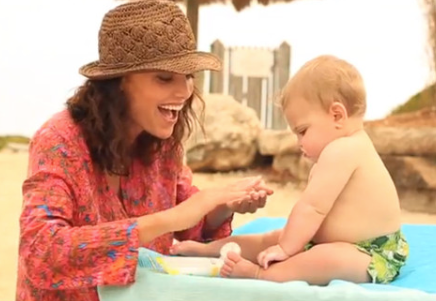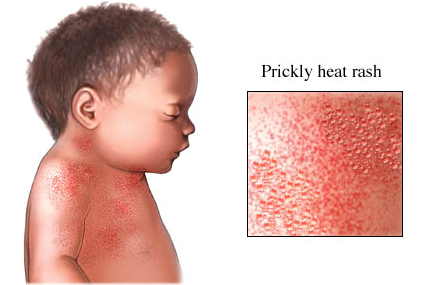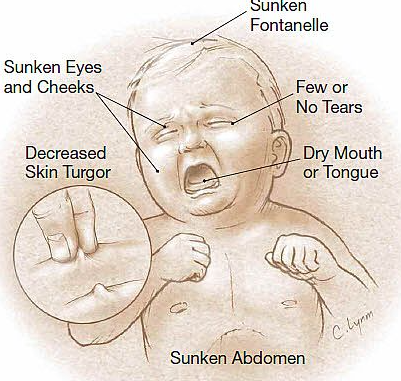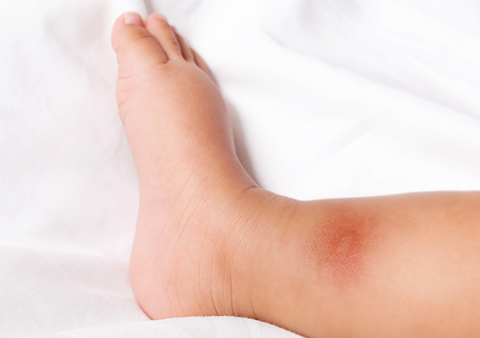Posted on
Summer means lazy days with your loved ones in the park, at the beach, camping, or by the pool - but with all this fun in the sun comes sunburns, bug bites, poisonous plants, and more! Before you head out, pack a seasonal first aid kit ready to handle all of the season's little emergencies.
Sunburn

Of course, the best approach to sunburn is an ounce of prevention! Always use sunscreen on babies six months of age and older, avoid direct sun during the hottest parts of the day (between 10 am and 3 pm), and keep kids covered with lightweight or UV-resistant clothing and sun hats.
But what if despite your best intentions, your little one still winds up turning pink? Remove your baby from the sun immediately and apply cool water to the affected area - a cool bath can soothe their skin while bath toys distract them from pain or discomfort. You can also use a cool (not icy) compress, and a gentle, natural moisturizer like aloe vera gel. Putting the gel in the refrigerator ahead of time is extra soothing. Keep your baby out of the sun until he is completely healed.
If you notice extreme redness, swelling, or blistering, contact your pediatrician.
What to Pack: Sunscreen, cool compresses, aloe vera gel
Heat Rash

Heat rash (sometimes called "prickly heat") is caused by perspiration trapped against your baby's skin. This red, bumpy rash usually appear in the folds of babies' skin, or anywhere clothing is pressing snugly against their bodies - for example, around elastic waistbands or diapers.
When you notice heat rash, it's time to cool your baby off! Get out of the sun and remove clothing from around the affected area. The rash is not painful but it can be itchy, so try bathing your baby in an oatmeal bath to calm itching - but avoid ointments, oils, or creams, as these can block your baby's pores and make the rash worse.
What to Pack: Cool compresses; oatmeal, baking soda, or other anti-itch bath
Heat Exhaustion and Heat Stroke
Mild heat stress can show up any time your baby has spent too long in the sun or in an overheated place. If your baby
If your baby or young child shows signs of dizziness, weakness, clamminess, nausea, headache, flushed or pale skin, muscle cramps, or vomiting, immediately get them to a cool place, loosen their clothing, offer water or a rehydrating solution like Pedialyte. A cool bath or cool compress can also help. If symptoms don't go away after an hour, call your pediatrician.

Know the signs of dehydration.
Also, look for signs of dehydration, including complaining of thirst (for talkers), dark-colored urine, dry lips, and not sweating very much.
If your baby seems disoriented, loses consciousness, has shallow or labored breathing, or a rapid pulse, go to the ER immediately. These may be signs of heat stroke, a very serious and even fatal condition.
What to Pack: Cool compresses; water or Pedialyte
Insects and Itchy Plants

Ouch! What to do if your baby gets an insect bite or sting? Most insect bites cause mild discomfort, like pain or itching. If possible, try to gently remove insect stingers with tweezers or scrape it away with a credit card or the back of a knife. Then wash the site with soap and water (or, if you're away from a sink, you can use wipes or antibacterial gel). A cold compress can relieve itching. Call your pediatrician to see if they recommend any medication like Benadryl or Tylenol.
For itchy plants like poison oak, you also want to gently wash the area and then apply a cool compress. Aloe vera gel can help soothe skin and calm itching. Call your pediatrician about using a hydrocortisone cream or antihistamines like Benadryl.
If your child experiences swelling, or difficulty breathing or swallowing, call 911 immediately - your child may have a serious allergic reaction.
What to Pack: Tweezers, cold compresses, aloe vera gel, antihistamines or pain relievers